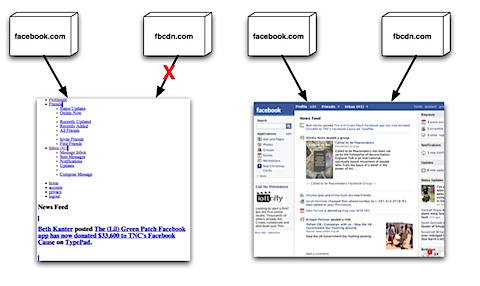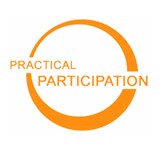Facebook, filters and taking the blocks off
We thought we had done well for today's Youth Work and Social Networking training session in Rotherham. As less than 30% of youth workers commonly have access to social networking sites in their workplaces many simply haven't ever spent any time looking at MySpace, Facebook or other social networking sites. So we had arranged to have the filters on the computers in the youth centre where we were meeting scaled back for key sites. We had asked plenty in advance - and listed all the sites we wanted to access - but all wasn't plain sailing.
Here's a quick round up of some of today's learning:
1) If the internet access provided to your youth centre is filtered you can probably ask for changes to be made to the filters, or for the filters to be scaled back for specific sessions.
If the internet provision is outsourced then there may be a small charge related to changes made to the filtering systems (as was the case in Rotherham). However, it is worth finding out whether:
- Your internet provided can set up scheduled differences in the filters (for example, so that Social Network Sites are available on a particular club night between 7pm and 9pm, when you have agreed that you will always closely supervise internet access).
- You can gain access to a 'bypass password' which will let a trusted member of staff unlock access to a particular site for a period of time (without needing to phone up technical support).
2) If you do want filters temporarily removed - make sure you let the internet provider know plenty in advance - and make sure check that it's worked before the session you need access for
We needed to access sites in the afternoon. Luckily we checked at 10.30am if the filters had been lifted. Because we spent quite a bit of the next hour on the phone to tech support trying to get the changes right. (But that was mainly because we hadn't yet learnt point 3).
3) Social network sites often use more than one website address to deliver their content: and you need to make sure all the different addresses are unblocked.
This point is a bit technical - so I'll use an example. To access the Facebook social network you type 'http://www.facebook.com into a web browser. So you might think that it was just www.facebook.com that you needed your IT provider to allow access to.
However, because Facebook is so massive, some of the images and layout files that make a facebook page appear are provided by a 'Content Delivery Network' - another set of computers with their own website address (in this case http://fbcdn.net)

If you don't get the blocks removed for this site as well you will end up unable to see the right layout for a site, or with all the images and videos failing to load.
So - if you're asking for site to be unblocked here are the details you will need (as of 10th June 2008)
- For Facebook you will need to unblock: facebook.com and fbcdn.net
- For MySpace you will need to unblock: myspace.com, uk.myspace.com, myspacecdn.com and myspacetv.com
- For Bebo you will need to unblock just bebo.com
- For TakingItGlobal you will need to unblock takingitglobal.org and tigblog.org
- For Ning you will need to unblock just ning.com unless the social network you are using has it's own domain name which is also blocked - in which case include that in your request too.
4) If your centre has computers which are independent of the local authority network, or if you need internet access on the go, you may be able to us a '3G Modem' to get unfiltered internet access.
3G Modems can plug into a computer and access the internet at broadband speeds over the mobile phone network (where the signal is good enough). 3G Modems are available on contracts and on Pay as You Go models from around £10 per month / per gigabyte of data you use (1Gb of data is enough for a couple of weeks regular web browsing use an a couple of hours of low quality online video for example). 
As they don't need to be connected to a computer all the time - they can be plugged in when a supervised internet access session is taking place - but as they connect directly to the internet they bypass any filters that have been set up.
This does mean that the filtering provided by local authorities to prevent access to illegal sites, pornography and other age-inappropriate and unsuitable material is also unavailable - but where internet access is being supervised this may not be a problem.
5) In in doubt - ask
The internet provider should be there to provide you with internet access. If you need access to a website for your work with young people - ask for it. Until the organisations providing internet access to youth centers start finding they're getting daily requests for sites to be made accessible, they're unlikely to be developing a better solution that allows youth workers to engage with, and support young people in using, online social networks.
---
It would be great to hear from others who have had experience dealing with the filters on their internet access. What have you discovered?
If there is enough interest then we'll try and put together the learning from our experience in Rotherham, plus other's experiences, into a quick How To sheet...


Leave a comment